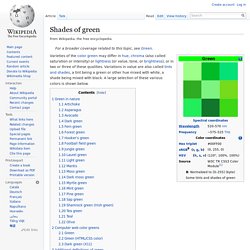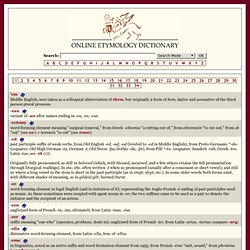

Synonyms for the 96 most commonly used words in English. Amazing — incredible, unbelievable, improbable, fabulous, wonderful, fantastic, astonishing, astounding, extraordinary Anger — enrage, infuriate, arouse, nettle, exasperate, inflame, madden Angry — mad, furious, enraged, excited, wrathful, indignant, exasperated, aroused, inflamed Answer — reply, respond, retort, acknowledge Ask– — question, inquire of, seek information from, put a question to, demand, request, expect, inquire, query, interrogate, examine, quiz Awful — dreadful, terrible, abominable, bad, poor, unpleasant Beautiful — pretty, lovely, handsome, attractive, gorgeous, dazzling, splendid, magnificent, comely, fair, ravishing, graceful, elegant, fine, exquisite, aesthetic, pleasing, shapely, delicate, stunning, glorious, heavenly, resplendent, radiant, glowing, blooming, sparkling.
List of superhuman features and abilities in fiction. Origins Examples of ways in which a character has gained the ability to generate an effect.

Methods Examples of methods by which a character generates an effect. Powers Superpower interaction This section refers to the ability to manipulate or otherwise interact with superpowers themselves, not "power" such as electrical power or gravitational power. Personal physical powers Powers which affect an individual's body. Mentality-based abilities The abilities of extra-sensory perception (ESP) and communication. Physical or mental domination Physics or reality manipulation These powers may be manifested by various methods, including: by some method of molecular control; by access to, or partially or fully shifting to another dimension; by manipulating the geometric dimensions of time or space; or by some other unnamed method.
Elemental and environmental powers Ability to control or manipulate the elements of nature. Energy manipulation These powers deal with energy generation, conversion and manipulation. Shades of green. For a broader coverage related to this topic, see Green.

Varieties of the color green may differ in hue, chroma (also called saturation or intensity) or lightness (or value, tone, or brightness), or in two or three of these qualities. Variations in value are also called tints and shades, a tint being a green or other hue mixed with white, a shade being mixed with black. A large selection of these various colors is shown below. Green in nature[edit] Green is common in nature, especially in plants. Artichoke[edit] Artichoke is a color that is a representation of the color of a raw fresh uncooked artichoke. Another name for this color is artichoke green. The first recorded use of "artichoke green" as a color name in English was in 1905.[4] Asparagus[edit] Asparagus is a tone of green that is named after the vegetable.
It is also the color of a wild asparagus plant blowing in the wind of the 1949 classic film Sands of Iwo Jima. Another name for this color is asparagus green. Avocado[edit] [edit] OneLook Dictionary Search. Online Etymology Dictionary. 'em Middle English, now taken as a colloquial abbreviation of them, but originally a form of hem, dative and accusative of the third person plural pronoun.

-ean variant of -an after names ending in -ea, -es, -eus. -ectomy word-forming element meaning "surgical removal," from Greek -ektomia "a cutting out of," from ektemnein "to cut out," from ek "out" (see ex-) + temnein "to cut" (see tome). -ed past participle suffix of weak verbs, from Old English -ed, -ad, -od (leveled to -ed in Middle English), from Proto-Germanic *-do- (cognates: Old High German -ta, German -t, Old Norse -þa, Gothic -da, -þs), from PIE *-to- (cognates: Sanskrit -tah, Greek -tos, Latin -tus; see -th (1)).
Originally fully pronounced, as still in beloved (which, with blessed, accursed, and a few others retains the full pronunciation through liturgical readings). -ee word-forming element in legal English (and in imitation of it), representing the Anglo-French -é ending of past participles used as nouns. Poetry.com Rhyming Dictionary and Thesaurus.